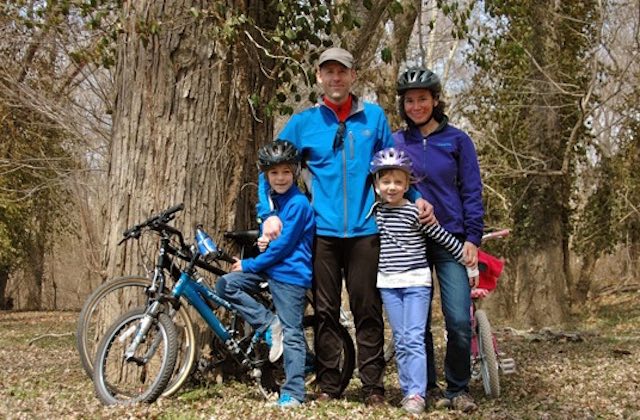Skyler Palmquist, age 8, and Cayden Palmquist, age 10, are hopeful about what might be accomplished in Paris at the United Nations Climate Change Conference, but wondered why they needed to wait for an international agreement before they took action on carbon emissions.
So, they issued a challenge from their home in Frederick, Maryland: How Low Can We Go challenges friends, schools, businesses, and towns, to take fossil fuel use “as low as we can go” on November 30, 2015, to show support for the conference in France.
MORE: 6 Young Environmental Leaders Win Prestigious Bower Award
“Our kids have grown up playing outside and want to protect the places they love. So, a few weeks ago, we sent out a challenge by way of a homemade video, narrated by Skyler and Cayden, that we posted on YouTube,” explained Ingrid Palmquist. “How Low Can We Go is a collective action that anyone can take, from anywhere, to send the message that we are ready and willing to reduce our carbon emissions. The kids are asking us all to unplug, park it, turn it off, or switch to 100% renewable clean energy for November 30.”
The siblings were especially excited when their grandmother was the first to accept the challenge. Their school, the Lucy School in Middletown, MD, also responded that it would accept the How Low Can We Go challenge, and is planning school-wide participation. Then local businesses, and folks near and far, joined the effort. “We’ve had responses from Finland, England, Ghana and Abu Dhabi, to name a few. The video has been seen in 23 countries,” said Mark Palmquist.
MORE: ‘Good Will Students’ Take Action For The Environment
Skyler and Cayden are encouraging kids who take the How Low Can We Go challenge to spend time outside on November 30. “That’s where real life is,” says Cayden. “Real life isn’t in a screen.”
“We want the people meeting in Paris to know that we are serious, and that we really can do this. We really mean it,” says Skyler.
How Low Can We Go uses November 30, the kick-off date for the U.N. Climate Conference, as a rallying point, and asks us to take a close look at our reliance on fossil fuels. The challenge involves consuming less energy altogether, or switching to a renewable energy source, and then carrying forward into the future the adaptations made on November 30.




















